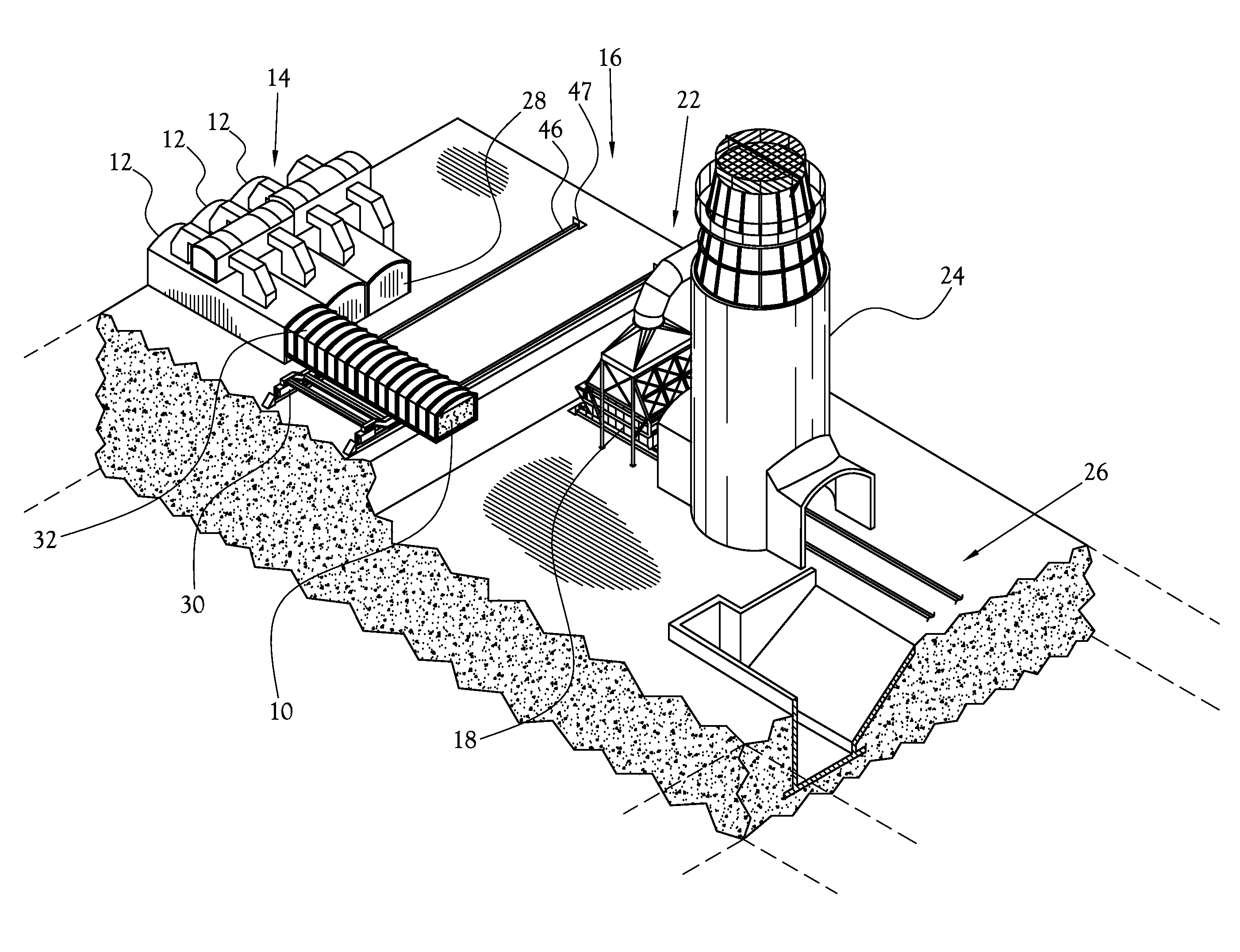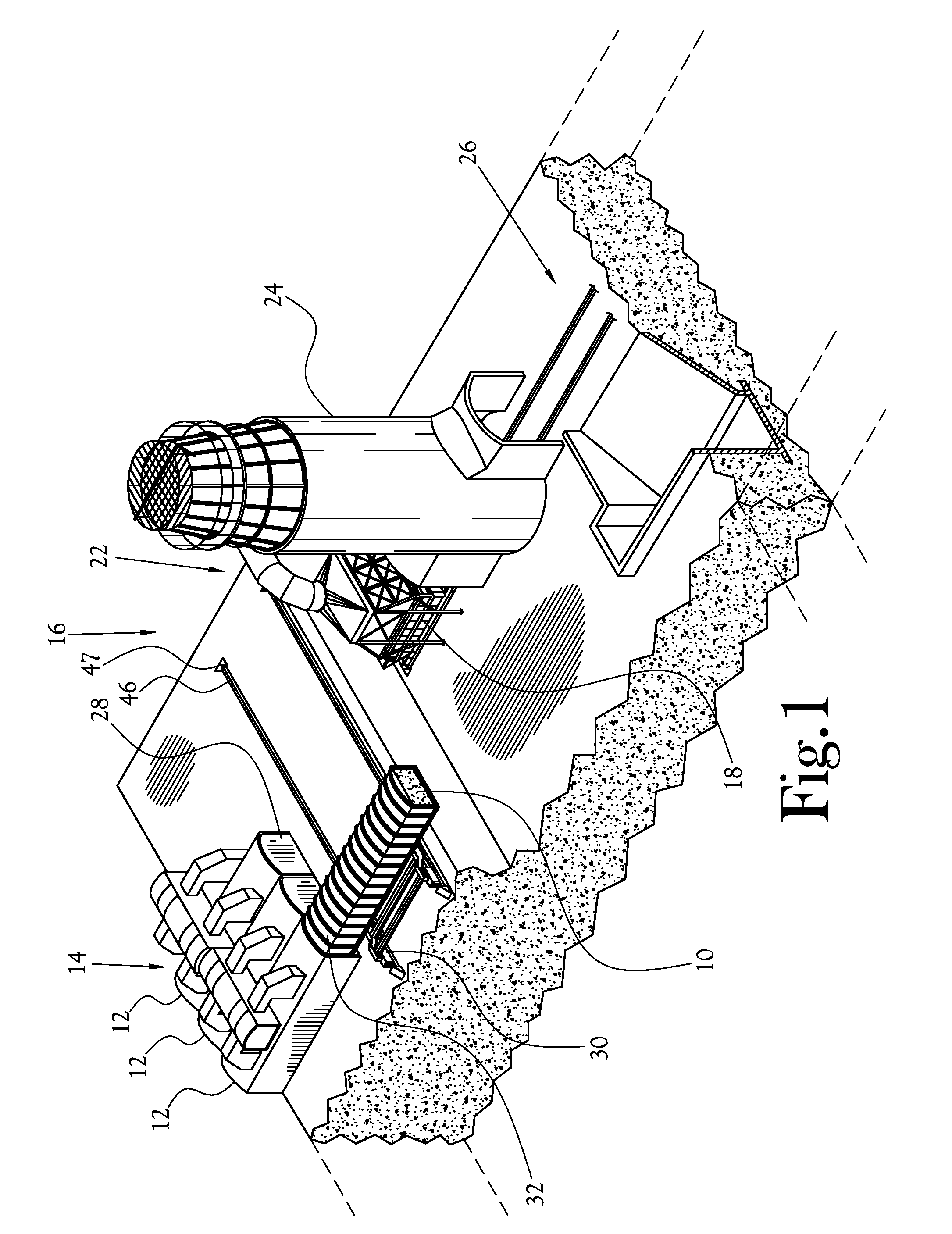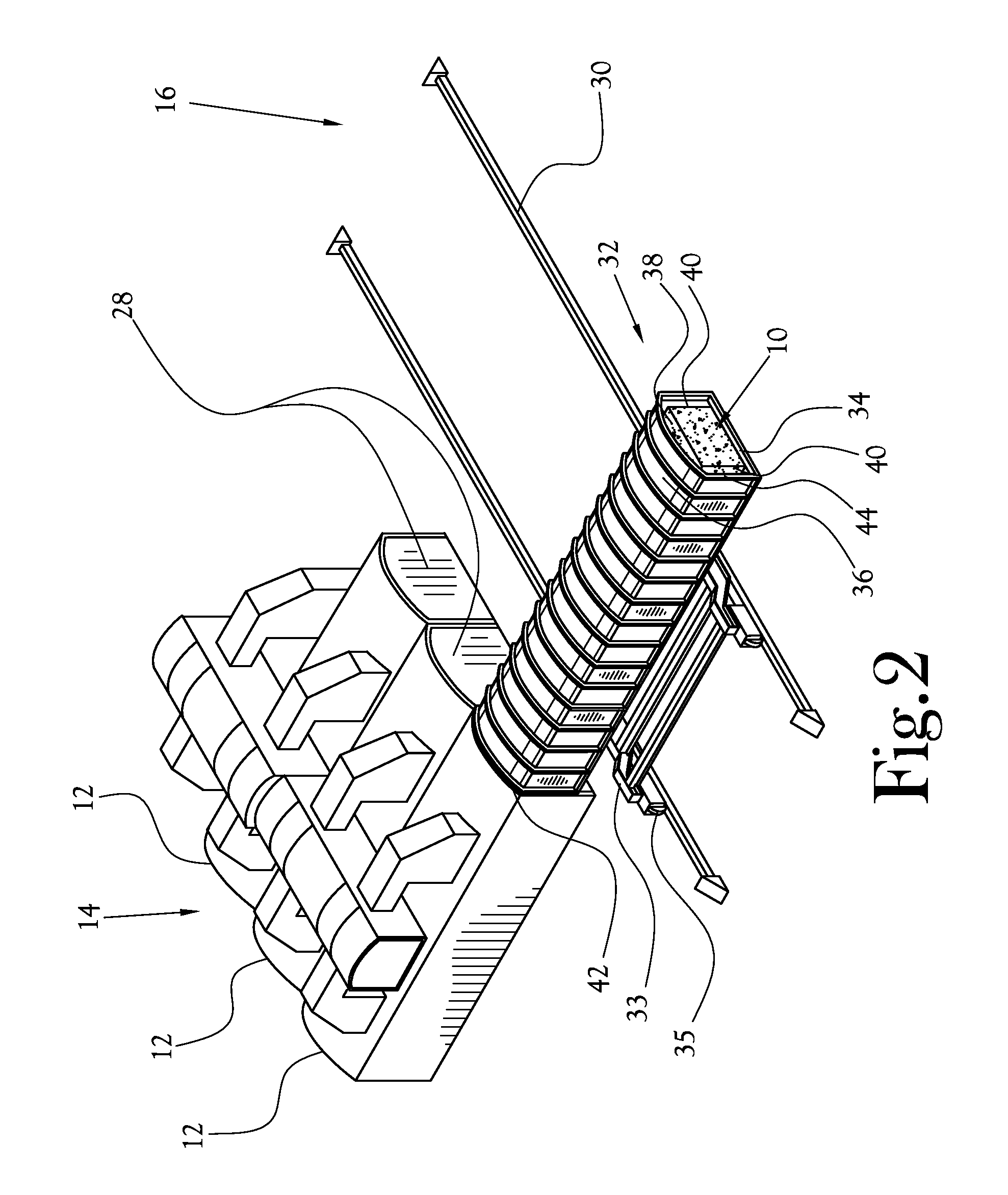Process for Transporting and Quenching Coke
a coke and transportation technology, applied in the direction of coke quenching, coke oven, discharging devices, etc., can solve the problems of coke batch spillage, dust pollution, and/or equipment damage, and achieve the effect of reducing the production time of the coke battery
- Summary
- Abstract
- Description
- Claims
- Application Information
AI Technical Summary
Benefits of technology
Problems solved by technology
Method used
Image
Examples
Embodiment Construction
[0032]A method and apparatus for transporting and quenching a batch of coke produced in one of a plurality of coke ovens forming a coke oven battery is disclosed and described herein and in the accompanying Figures. With reference to FIG. 1, the method for transporting and quenching coke, or method, utilizes a hot car 32 to transport a batch of hot caked coke 10 from one of a plurality of coke ovens 12 forming a coke oven battery 14 to a transfer station 16. At the transfer station 16, the hot caked coke 10 is transferred to a quench car 18, during which separation of the hot caked coke 10 into loose bulk coke 20 occurs (see FIG. 4). As will be further explained below, the transfer station 16 is provided with a dust collection system 22 for collecting dust generated proximate the transfer station 16 during transfer of the hot caked coke 10 to the quench car 18 and resultant separation of the hot caked coke 10. The quench car 18 is used to transport the loose bulk coke 20 to a quench...
PUM
| Property | Measurement | Unit |
|---|---|---|
| elevation | aaaaa | aaaaa |
| distance | aaaaa | aaaaa |
| cylindrical shape | aaaaa | aaaaa |
Abstract
Description
Claims
Application Information
 Login to View More
Login to View More - R&D
- Intellectual Property
- Life Sciences
- Materials
- Tech Scout
- Unparalleled Data Quality
- Higher Quality Content
- 60% Fewer Hallucinations
Browse by: Latest US Patents, China's latest patents, Technical Efficacy Thesaurus, Application Domain, Technology Topic, Popular Technical Reports.
© 2025 PatSnap. All rights reserved.Legal|Privacy policy|Modern Slavery Act Transparency Statement|Sitemap|About US| Contact US: help@patsnap.com



